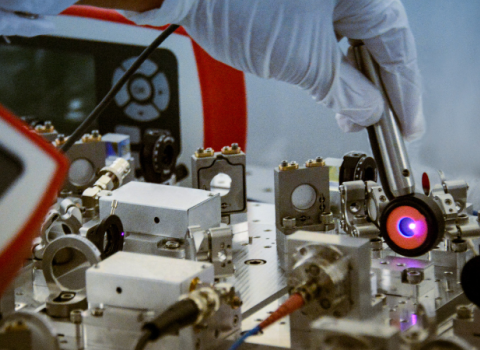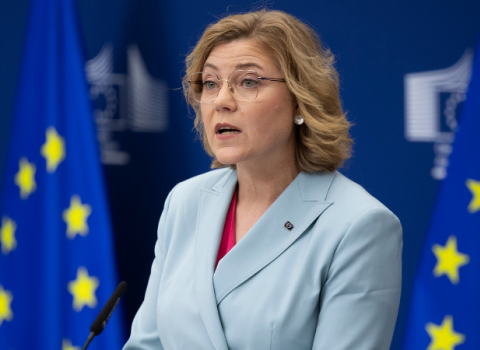Brexit fears have not prevented British researchers from preparing to join a decade-long quantum technologies megaproject run out of Brussels.
The European Commission’s flagship, launching in 2018, will provide €1 billion to researchers to incubate a range of quantum technologies and translate the investment in basic research through to breakthroughs in computing, sensing, communication, measuring and simulation.
British scientists are involved in the early preparations, even though the UK’s later involvement is in doubt, with the country preparing to leave the EU.
“The issue of Brexit is hovering over us, and no one is sure what the UK participation will be during the main phase of the project, as this depends on the political direction that the UK decides to take,” said Richard Murray, lead technologist in the emerging technologies and industries sector of Innovate UK, which is funding a £150 million UK network of quantum technology hubs based in Birmingham, Glasgow, Oxford and York.
For now, the Commission “seems to value and listen to our opinion,” Murray said.
EU lawmakers have appointed three Britains, two from academia and one from industry – to the project steering committee.
“I think everyone wants to continue on with their collaborations in Europe,” said Graeme Malcolm, founder and chief executive officer of M Squared, a British laser company with a seat on the committee.
But this will be difficult if the UK opts for a clean break from the EU, a scenario dreaded by researchers.
Malcolm hopes instead for a “common sense” outcome from looming divorce talks “We’ll talk to our government if there’s any bumps on the road,” he added.
Other quantum labs want the UK to remain in the project, which proponents say could help transform modelling in financial markets, lead to massive improvements in cryptography and revolutionise artificial intelligence.
“My own opinion is that it would be a disaster if Britain couldn’t join us,” said Tommaso Calarco, director of the Centre for Integrated Quantum Science and Technology in Ulm.
Calarco is co-author of the ‘Quantum Manifesto’, published in March, which is the impetus behind the EU flagship. “We hope solutions can be found so they can contribute,” he said. But Calarco vowed to steer clear of politics. “We keep our heads down and focus on our goals.”





 A unique international forum for public research organisations and companies to connect their external engagement with strategic interests around their R&D system.
A unique international forum for public research organisations and companies to connect their external engagement with strategic interests around their R&D system.